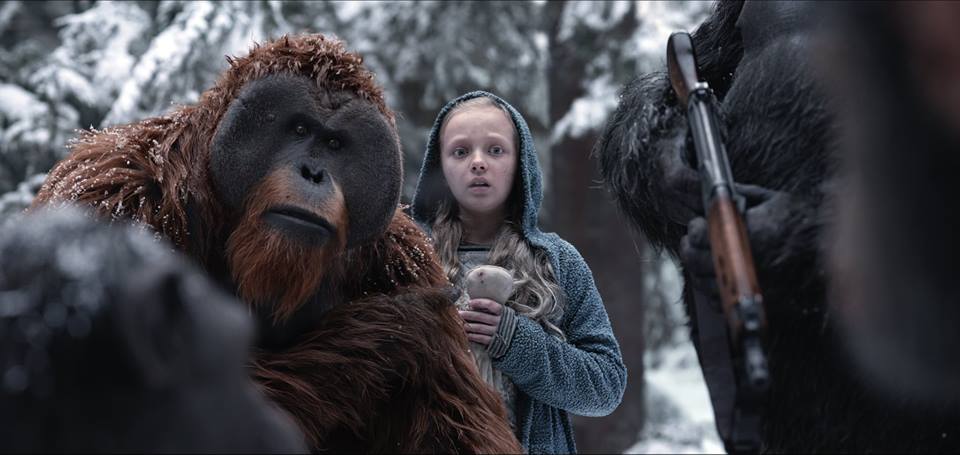HOLLYWOOD—A trilogy is a rare phenomenon in the cinematic universe. Some great trilogies include “The Godfather” saga and the first “Star Wars” series. Beyond that, horror has attempted the feat, but failed miserably. Well, “War for the Planet of the Apes” proves with effective storytelling and compelling characters, you can indeed elevate a franchise to new heights people.
“War for the Planet of the Apes” concludes this trilogy in an effective, riveting and very political nature that strikes the viewer at the core. I will acknowledge this is not a movie that you can watch without seeing “Rise of the Planet of the Apes” and “Dawn of the Planet of the Apes.” There is a clear reason for that, because each of those films set the stage for the next flick. “Dawn” confirmed a war was brewing, which was ultimately unleashed at the end of the flick. “War” picks up where that film left off, with the apes leaving in solitude in the forest, but the humans just keep on encroaching on their territory that leads to a battle.
Of course, Caesar (Andy Serkis) is still the leader of the highly intelligent animals that communicate via sign language; we even get the opportunity to interact with another ape who can also speak, Bad Ape (Steve Zahn). His ability to converse leaves Caesar at a loss for words, as he suspected he was the only of his kind who could accomplish such a feat. The bulk of the narrative revolves around a battle between Caesar and The Colonel (Woody Harrelson). Harrelson is fantastic in this villainous role; this is a character that you love to hate, but as you learn his backstory, you still hate the guy who will go to no limit to exact his vengeance against the virus that took impacted his son.
I respect this third chapter, for shedding even more light onto exactly how those scientific experiments with apes ultimately leads to the downfall of the human race. At its core, “War” puts into perspective that science can indeed be a dangerous thing, and there are some species, some ‘things’ that should not be experimented on. The virus not only lead to the death of many in the human race, but its evolving, so much to the point that those infected begin to lose their ability to speak.
Watching this movie, I couldn’t help, but have a bigger appreciation for animal life and the fact that animals are damn smart. Yes, this is a movie, but we all know communication happens, and to see these animals interact with each other as well as humans is fascinating to experience on the big screen. Amiah Miller who portrays Nova, delivers a sensational performance as a mute orphan who is adopted by Maurice (Karin Kanoval) who refuses to leave the child alone in the middle of nowhere. That is what resonates so well about this movie: war. War is complicated, it’s conflicting and innocence is impacted in the midst of utter chaos.
Caesar is out for blood when it becomes a realization that it’s either the extinction of the apes or the humans, and as a viewer, I was conflicted on who to root for. Now, those who are entering the theater with the assumption that the movie is overly political as some critics have pointed out, remove that notion; it’s not that political, but you can sense the overtones, especially when it becomes apparent that The Colonel will do anything to get his way, not only killing apes, but any humans that go against his wishes.
This movie has it all, stellar special effects; the apes are so realistic and eye-popping, if you look at the 1968 classic starring Charles Heston you can’t help, but laugh. This is a testament to the evolution of filmmaking and phenomenal work by Serkis, Zahn, Konoval, Terry Notary, Ty Olsson, Michael Adamthwaite, Toby Kebbell, Judy Greer, Sara Canning, Max Lloyd-Jones, Devyn Dalton and Aleks Paunovic.
Matt Reeves who helmed the camera for “Dawn of the Planet of the Apes” really puts those finesse touches on completely a story that has a solid ending that works on all cylinders!





